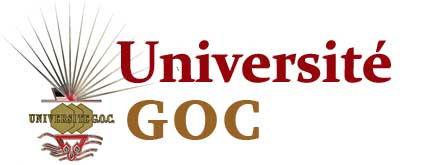Goal
This program offers training to enable you to analyze and systematically informed of issues such as changes in economic conditions, the impact of government budget choices on unemployment, inflation and well-being, the relative effectiveness of different environmental policies, the implications of demographic changes ahead, analysis of aid to developing countries, the impact of various natural resource management policies, the effects of different family policies and support income, etc.
You should show an interest for economics, political and social. Lovingly advise people and participate in their decisions.
You will need to analyze, compare and quantify data and draw conclusions.
- It is important to be able to organize and systematize information.
- Have talent for social sciences and mathematics.
- Being a good communicator.
- Being critical and pragmatic.
- Being comfortable with abstract ideas and deduction.
The opportunity of an economist, employment prospects are excellent and varied. You can work in different areas such as public and parapublic service, financial institutions, municipalities, national and international organizations and educational institutions.
You will be asked to analyze, among other things, environmental policy, regulation of industries, pricing of public services, changes in commodity prices or exchange rates, investment strategies, production and prices businesses as well as fiscal and monetary policies.
Excellence in the economic bachelor’s degree allows several graduates to proceed toward the master’s and doctoral studies at institutions around the world.
Professions
- Development officer for project
- Development Officer Or Project
- Agent Search And Socio-Economic Planning
- Analyst Economic Policy
- Economic Adviser
- Economist
- Specialized Economist (Economist Of International Trade, Labor Economist, Environmental Economist, Etc.)
- Teacher
- Researcher
Employers
- Insurance Companies
- Multinational Companies
- Educational Institutions
- Consulting Firms
- Financial Institutions
- Ministries And Public And Parapublic Organizations
- International Organizations
- Towns And Municipalities
Certificate in Social Sciences - Semester 1
Hover Over Each Title to View the Description
Objective
To introduce the applicant to certain practices based on specific social service themes. Sociohistoric analysis and intervention methods develop multidisciplinary knowledge. 30cr.
CODE | TITLE | CREDITS |
CSS 1175 | Contemporary SociologyCSS 1175 Contemporary Sociology 3 credits This course is the study of theoretical frameworks characterizing contemporary social problems, and the factors involved in defining, measuring, and analyzing social problems. Students will learn new theoretical and methodological approaches to social problems. | 3 |
CSS 1176 | Social InjusticeCCS 1176 Social Injustice 3 credits This course studies the concepts of discrimination, social mobility, poverty, the significance and measurement of poverty, and the prevalence and dynamics of poverty in Haiti. The topics include the individual and collective consequences of poverty. | 3 |
CSS 1177 | Problems of Social ExclusionCCS 1177 Problems of Social Exclusion 3 credits This course studies the components in the dynamic processes of marginalization and social exclusion. The concepts of vulnerability are among the topics covered, including disaffiliation and distancing, integration, and social inclusion. | 3 |
CSS 1180 | Youth in CrisisCCS 1180 Youth in Crisis 3 credits This course is the study of intervention practices developed in institutional and community settings. A community's perception of a social problem is often a result of interactions with other people. Social issues in terms of perspective and understanding of dysfunctions in society are analyzed throughout the course. | 3 |
CSS 1183 | Immigration and EmigrationCCS 1183 Immigration and Emigration 3 credits This course is the study of family habits specific to certain ethnic groups. Topics include characteristics, expectations, needs of immigrant and refugee populations, problems associated with integration into the host society; prejudices, jobs, living conditions, school adaptation, intergenerational and interethnic conflicts, ghettoization, etc. Topics include values, roles, and attitudes of the social worker concerning multiethnic placement. | 3 |
Certificate in Social Sciences - Semester 2
Hover Over Each Title to View the Description
Objective
To introduce the applicant to certain practices based on specific social service themes. Sociohistoric analysis and intervention methods develop multidisciplinary knowledge. 30cr.
CODE | TITLE | CREDITS |
CSS 2235 | Delinquency and CriminalityCSS 2235 Delinquency and Criminality 3 credits This course investigates the sources and origins of criminal acts leading to the failure of social adjustment. Topics include different types of delinquency (juvenile, female, sexual, related to drug addiction, mental illness, gangs, etc.), prevention, treatment, and rehabilitation. | 3 |
CSS 2252 | Spaces Cultures and SocietiesCCS 2252 Spaces Cultures and Societies 3 credits This course is the study of the human population. Topics include languages, cultures, religions, the evolution of societies, and the establishment of rural and urban environments and landscapes. | 3 |
CSS 2270 | Social Discipline and PracticeCCS 2270 Social Discipline and Practice 3 credits This course studies the values, foundations, and objectives of the profession. Topics include social functioning and social development; methodologies in social work; commonly used approaches and models of practice; public and community service networks; specificity of social work compared to related disciplines. Additional topics include the issues concerning the occupation of social work. | 3 |
CSS 2275 | Social Media IssuesCCS 2275 Social Media Issues 3 credits This course studies the main theoretical referents of systems analysis in the human sciences. Topics analyze the function and change in families and natural social networks. | 3 |
CSS 2281 | Mental HealthCCS 2281 Mental Health 3 credits Students are taught concepts of normality, mental health, mental disorder, mental health policies and the recovery approach. Topics include anxiety, grief, low self-esteem, stress, relationship difficulties and suicidal impulses. | 3 |



















 Département d’éducation physique d’éducation
Département d’éducation physique d’éducation Département des sciences végétales
Département des sciences végétales Département de science politique
Département de science politique  Département de psychiatrie
Département de psychiatrie Département de radiologie
Département de radiologie Département de Sociologie
Département de Sociologie
 Département de Génie des Sols et Agroalimentaire
Département de Génie des Sols et Agroalimentaire
 Département de chirurgie
Département de chirurgie Département de Sciences du bois et de la forêt
Département de Sciences du bois et de la forêt
























